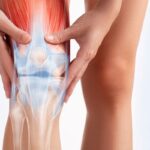Early Symptoms Of Rheumatoid Arthritis
There are early symptoms of rheumatoid arthritis and late-stage symptoms. Rheumatoid arthritis (RA) is an autoimmune disorder characterized by chronic joint inflammation.
RA typically starts gradually with mild symptoms that may fluctuate, affecting both sides of the body. Early signs can include general bodily pain and weakness. As the condition progresses over weeks or months, additional symptoms such as joint swelling may develop.
Symptoms of RA vary widely among individuals and can evolve over time. Periods of increased symptoms are known as flare-ups, while times when symptoms lessen or disappear are called remission.
Early Stage Symptoms of Rheumatoid Arthritis (RA)
Rheumatoid arthritis (RA) can manifest at any age, but it commonly appears between 30 and 50 years old, with a higher prevalence among women.
Recognizing the early stage symptoms of RA is crucial, as they may not always include noticeable joint swelling and redness, but rather more subtle indications that something is amiss:
- Tenderness and Pain: Sensitivity and discomfort in specific areas of the body, often joints, can be early signs of RA.
- Increased Fatigue: An uptick in fatigue, even after normal activities, due to the body’s response to inflammation.
- Muscular Weakness: Unfamiliar weakness in certain body areas that was not present before the onset of RA symptoms.
- General Malaise: A sense of feeling generally unwell, which can accompany early RA symptoms.
Later Stage Symptoms of Rheumatoid Arthritis
As RA inflammation persists over weeks or months, more evident symptoms typically emerge, signaling the progression of the condition:
- Joint Swelling, Redness, and Warmth: Inflammation attacks joint linings, causing visible swelling, redness, and warmth in affected joints.
- Persistent Fatigue: Continued fatigue as the body continues to combat inflammation, impacting daily activities.
- Morning Stiffness: Pronounced stiffness in joints upon waking, lasting more than 30 minutes, a hallmark of RA.
- General Joint Pain and Stiffness: Throughout the day, joints may feel stiff, especially after periods of rest, affecting mobility and comfort.
- Symmetrical Affliction: RA often affects joints on both sides of the body concurrently.
- Low-Grade Fever: Occasionally, a mild fever may accompany other RA symptoms during a flare-up.
- Numbness and Tingling: Inflammation pressing on nerves can lead to sensations like numbness, tingling, or carpal tunnel syndrome in the hands.
- Limited Range of Motion: Progressive joint inflammation can restrict movement, making it difficult to fully bend or straighten affected joints.
Managing RA Symptoms
Early diagnosis and treatment are critical in managing RA symptoms and preventing long-term joint damage. Medical intervention, including medications and lifestyle adjustments, can help alleviate symptoms, improve mobility, and enhance quality of life.
Regular exercise, under guidance, can also help mitigate pain and stiffness associated with RA.
Other Symptoms of Rheumatoid Arthritis (RA)
In addition to joint-related symptoms, rheumatoid arthritis (RA) can affect various aspects of your health, leading to diverse symptoms:
- Loss of Appetite: Decreased desire to eat, often associated with systemic inflammation.
- Dry Eyes and Mouth: Resulting from Sjogren’s syndrome, a condition often linked to RA that affects moisture-producing glands.
- Rheumatoid Nodules: Hard lumps forming under the skin, typically in areas like the elbows and hands, though they can occur elsewhere.
- Weight Loss: Unintentional weight reduction due to factors such as decreased appetite or systemic inflammation.
- Chest Pain: Occasionally, RA inflammation can affect the heart, causing chest discomfort or pain.
- Nerve or Skin Damage: Inflammation impacting blood vessels can lead to skin issues and nerve damage.
Symptoms by Body Part
During the early stages of RA, symptoms commonly manifest in specific areas of the body, though the disease’s progression can affect nearly any joint:
- Small Joints: Initial symptoms often appear in the small joints of the hands and feet, characterized by stiffness and discomfort.
- Knees and Hips: RA inflammation can also target larger joints such as the knees and hips, impairing mobility and causing pain.
Impact on Organs
RA’s inflammatory effects extend beyond joints, potentially disrupting organ function:
- Heart: Inflammation can lead to damage of the heart muscle, impacting its ability to function properly.
- Lungs: Scarring of lung tissue can occur due to chronic inflammation, potentially leading to breathing difficulties.
- Blood Vessels: Damage to blood vessels can result in complications affecting the skin and nerves, among other issues.
Managing Rheumatoid Arthritis
Early diagnosis and a comprehensive treatment plan are crucial in managing RA symptoms and preventing long-term complications. Treatment typically involves medications to reduce inflammation, alleviate pain, and slow disease progression.
Regular monitoring and adjustments to treatment, along with lifestyle modifications like regular exercise and a balanced diet, can help manage symptoms and improve overall quality of life for individuals with RA.
Early symptoms of rheumatoid arthritis in Summary
Early symptoms of rheumatoid arthritis (RA) can vary from person to person, but commonly include:
- Joint Stiffness: Especially in the morning or after periods of inactivity. This stiffness typically lasts longer than 30 minutes.
- Joint Pain: Often described as a dull, aching pain in the affected joints, which may be more noticeable after periods of rest or inactivity.
- Fatigue: Persistent tiredness or a feeling of low energy, even after adequate rest.
- Joint Swelling: Some individuals may notice swelling and warmth around the joints affected by RA.
- Joint Tenderness: The joints may feel tender to the touch or sensitive, especially when pressure is applied.
- Generalized Weakness: A sense of weakness or feeling unwell, which can affect daily activities.
- Low-Grade Fever: Occasionally, a mild fever may accompany other early symptoms, indicating systemic inflammation.
It’s important to note that symptoms of RA can develop gradually and may initially be mild, making them easy to overlook or attribute to other causes.
If you experience any of these symptoms persistently, especially joint stiffness in the morning or after rest, it’s advisable to consult a healthcare provider for evaluation and diagnosis. Early detection and treatment can help manage RA effectively and prevent long-term joint damage.
When to See a Doctor for Possible Rheumatoid Arthritis
Rheumatoid arthritis (RA) can progressively worsen if left untreated, making it crucial to seek medical attention if you experience the following symptoms persistently, especially over a few weeks:
- Joint Stiffness: Particularly noticeable in the mornings and lasting more than 30 minutes.
- Persistent Fatigue: Unexplained tiredness that persists despite adequate rest.
- General Sense of Illness: Feeling unwell without a clear cause, often associated with systemic inflammation.
If you notice these symptoms, it’s important to consult a doctor promptly. Early intervention can lead to better management of RA and potentially prevent long-term complications.
Diagnostic Process
Diagnosing RA typically involves a combination of assessments:
- Blood Tests: These tests can detect specific antibodies and markers associated with RA, aiding in diagnosis.
- Physical Examination: Your doctor will examine your joints for swelling, tenderness, and range of motion.
- Imaging Studies: X-rays or ultrasound scans may be used to visualize joint damage and assess disease progression.
Specialist Referral
If RA is suspected or diagnosed, you may be referred to a rheumatologist, a specialist trained in treating diseases affecting the musculoskeletal system:
- Rheumatologist’s Role: They provide specialized care and expertise in managing RA and related conditions, offering tailored treatment plans to address symptoms and prevent complications.
Seeking early medical attention and following through with diagnostic testing can lead to timely intervention and improved outcomes for individuals with rheumatoid arthritis.
Benefits of Eating Pomegranate
Foods to help with Constipation

A graduate of Computer Science and Information Management Technology. Diploma – Caregiving, Certificates – Dementia and Diabetes Awareness and Management. A researcher, blogger, songwriter, singer and acoustic guitarist. Born in an environment where natural talents such as healing are imparted at our natural birth. This natural talents of healing is the result of our genetic inheritance and the training from family environment.












